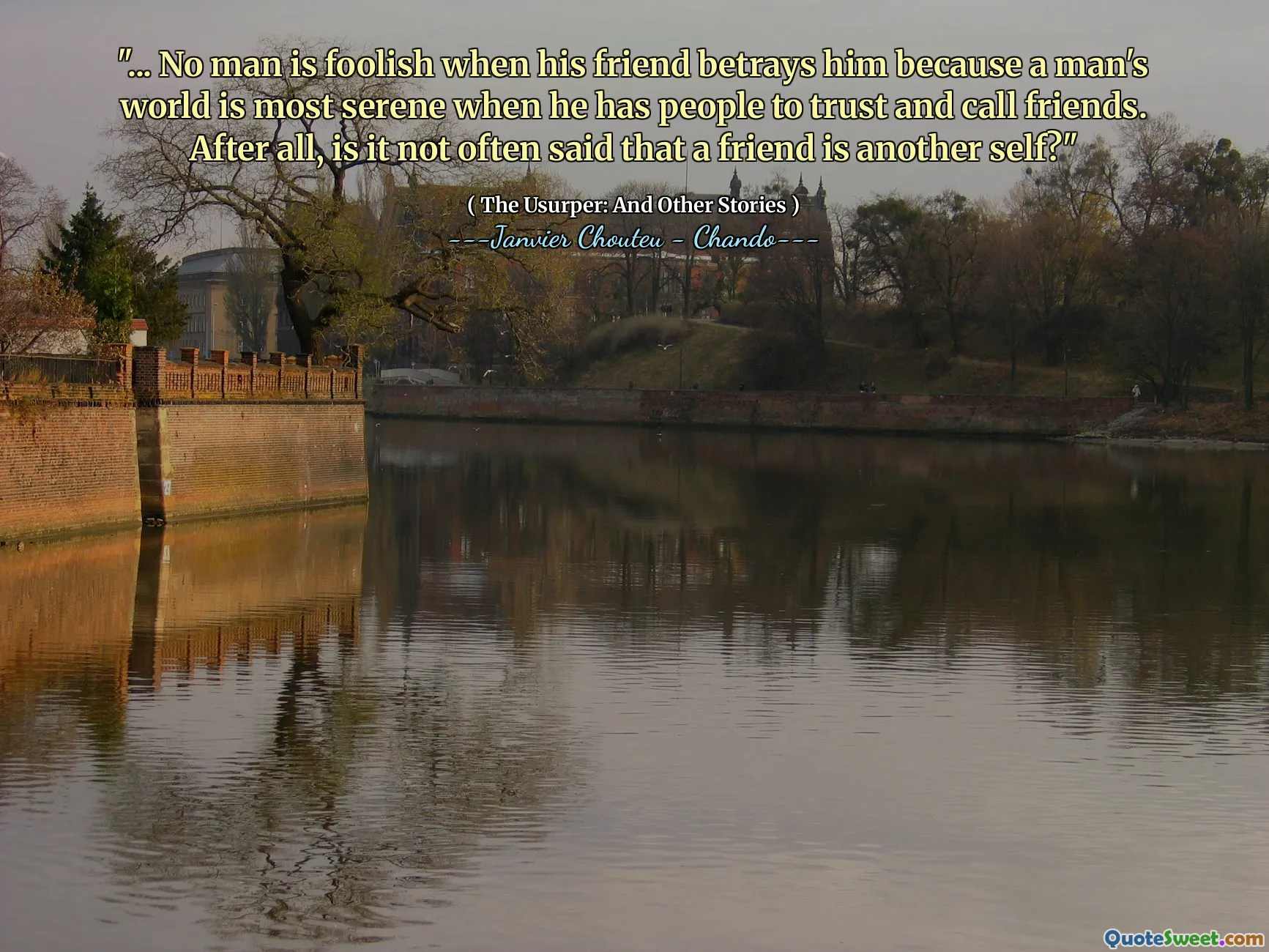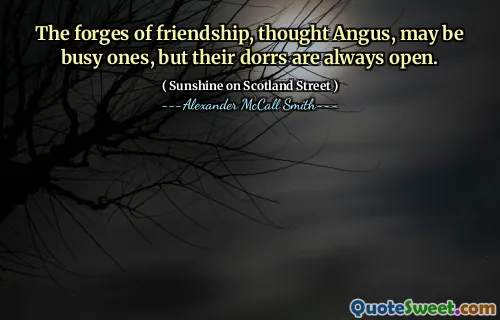
"... No man is foolish when his friend betrays him because a man's world is most serene when he has people to trust and call friends. After all, is it not often said that a friend is another self?"
This quote deeply explores the intricate nature of friendship and trust, highlighting the unparalleled value of genuine connections in one's life. It conveys a profound truth: that the serenity of a person's world is heavily dependent on the presence of trustworthy friends. When betrayal arises from those we consider friends, it does not render us foolish; rather, it reveals the inherent risk embedded in investing our trust in others. Trust is a foundational component of human relationships and acts as a bridge that connects souls, enabling us to share our innermost selves and find solace. The eloquent comparison of a friend to "another self" beautifully encapsulates the intimacy and understanding that best friendships nurture—friends are mirrors reflecting our ideals, emotions, and vulnerabilities back to us.
The statement encourages us to acknowledge the pain of betrayal without diminishing the value of friendship. It reminds us that betrayal, while painful, is a part of the human experience and yet does not negate the wisdom in seeking meaningful companionship. In essence, it is not folly to trust, but an essential act of courage. Trust builds our world; without it, life would be a solitary affair devoid of communal support and joy. This passage from "The Usurper: And Other Stories" by Janvier Chouteu - Chando invites contemplation on the dynamics of trust, the inevitable risk of betrayal, and the irreplaceable treasure that true friendship constitutes in one's journey through life.






